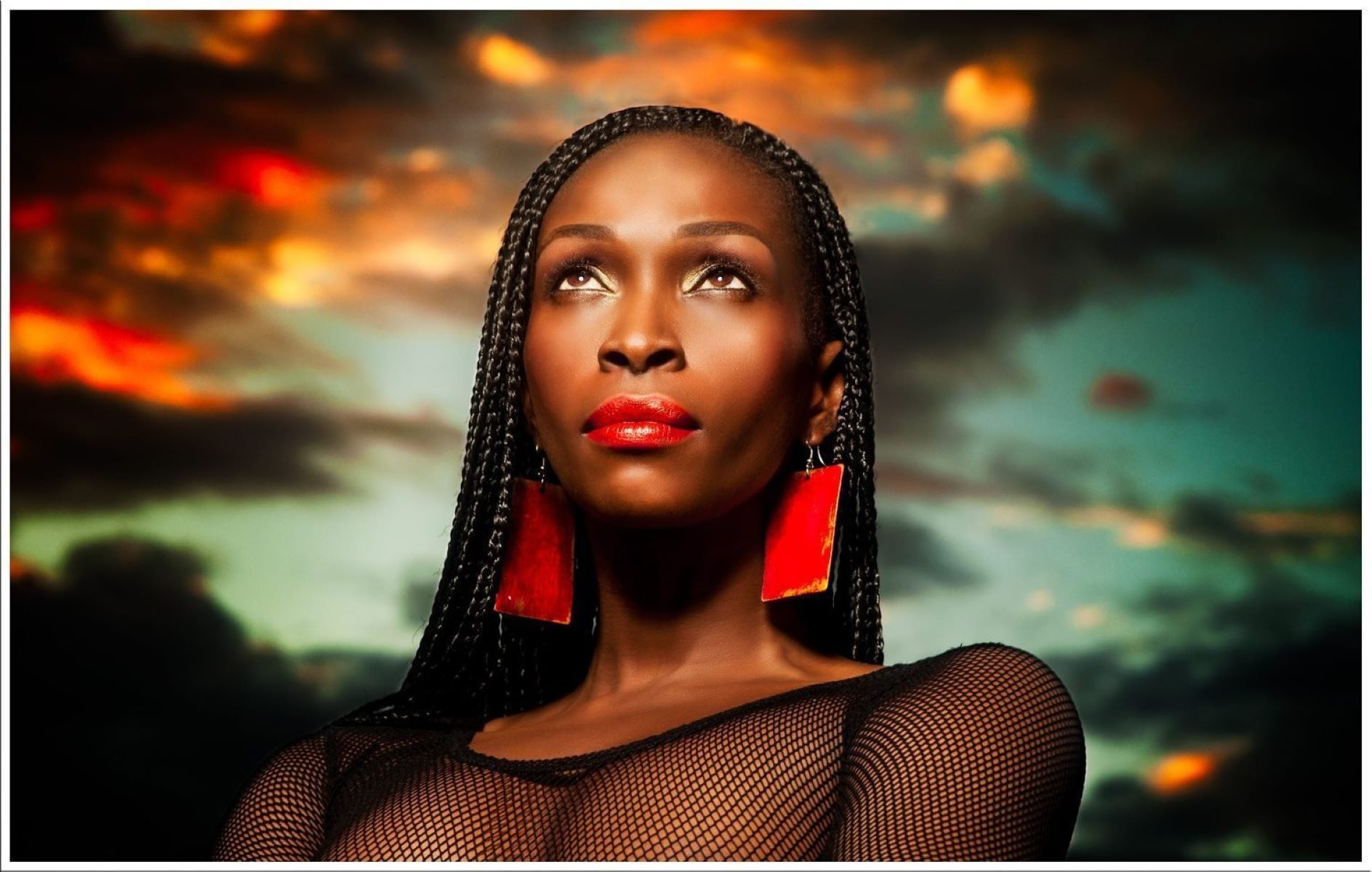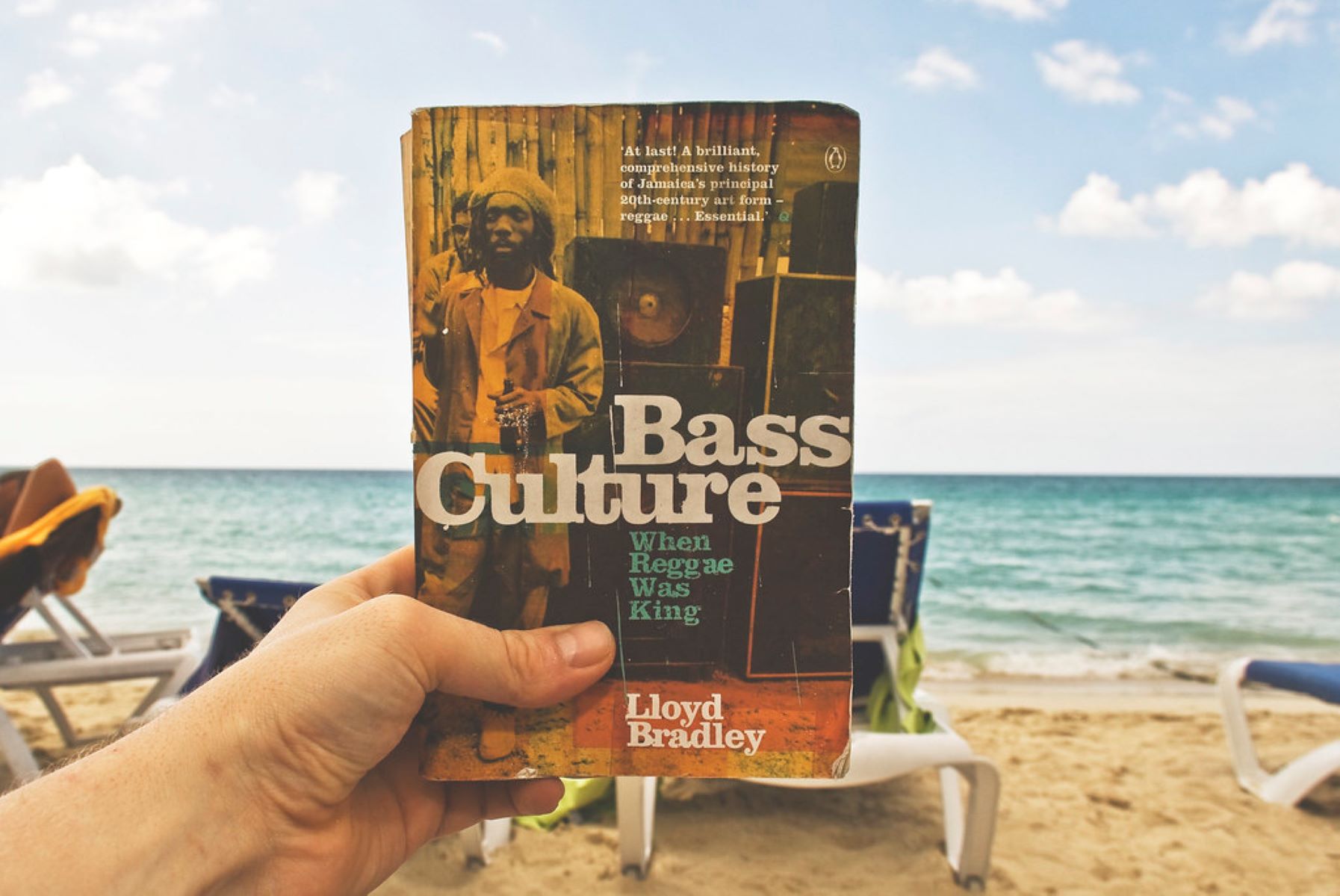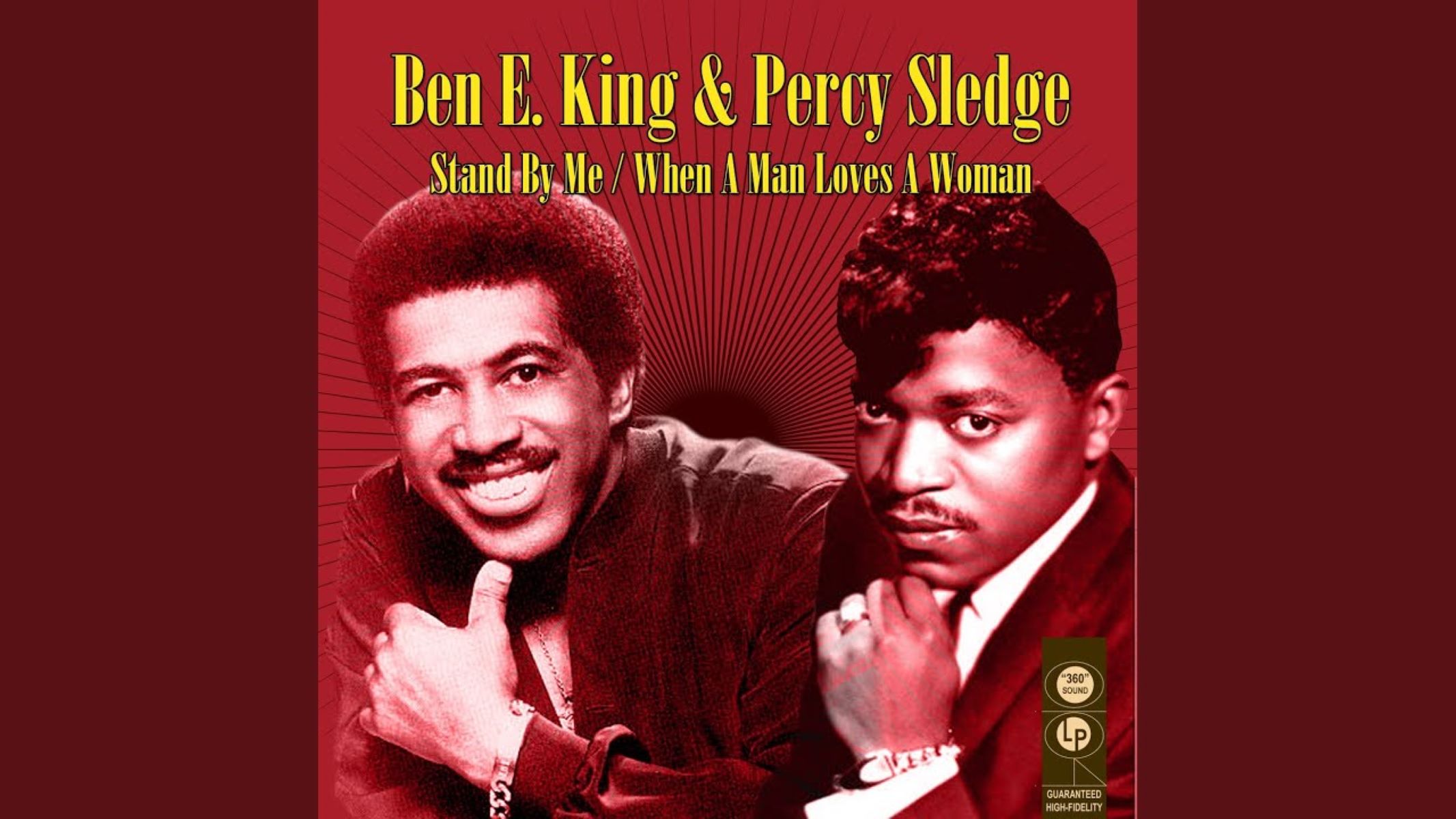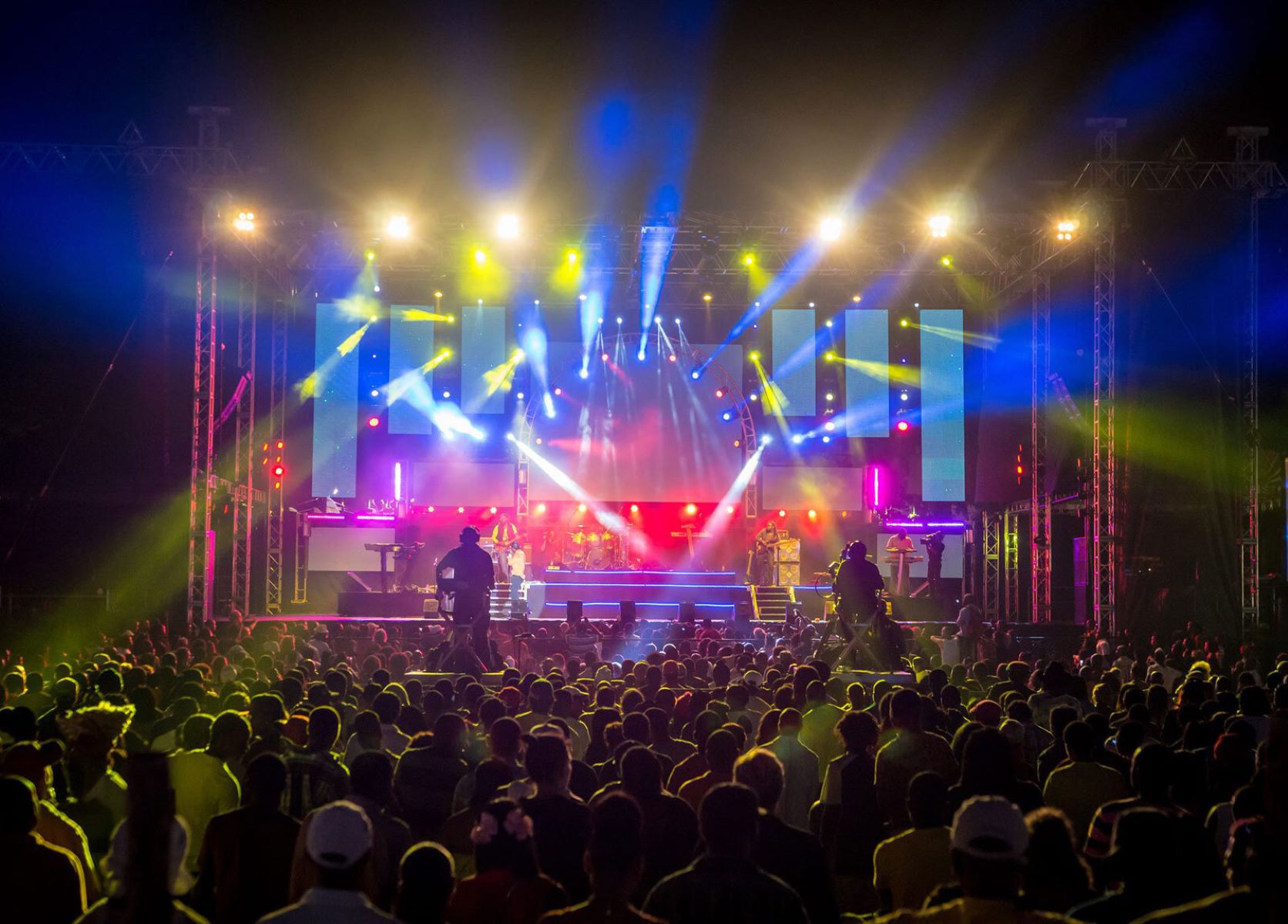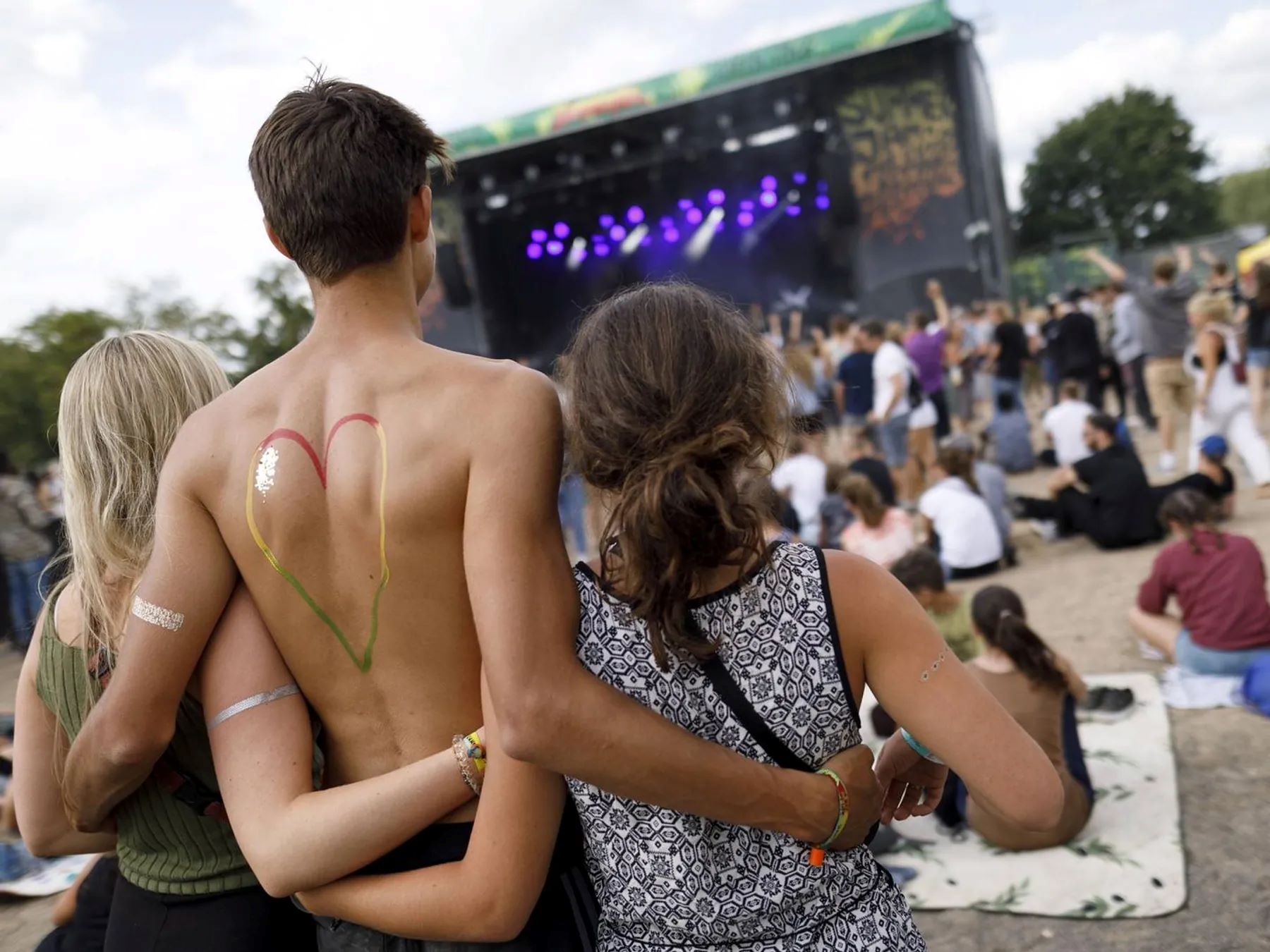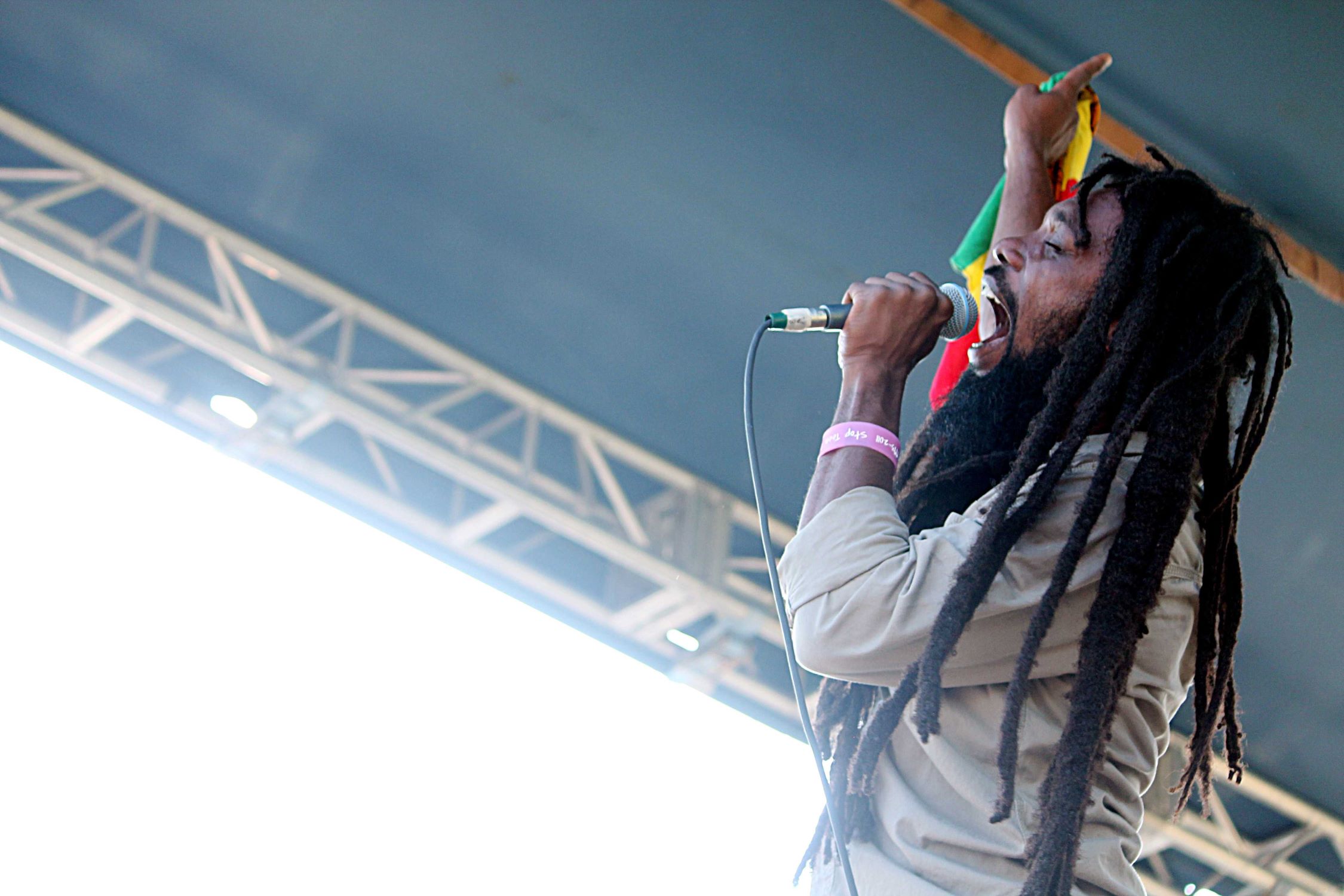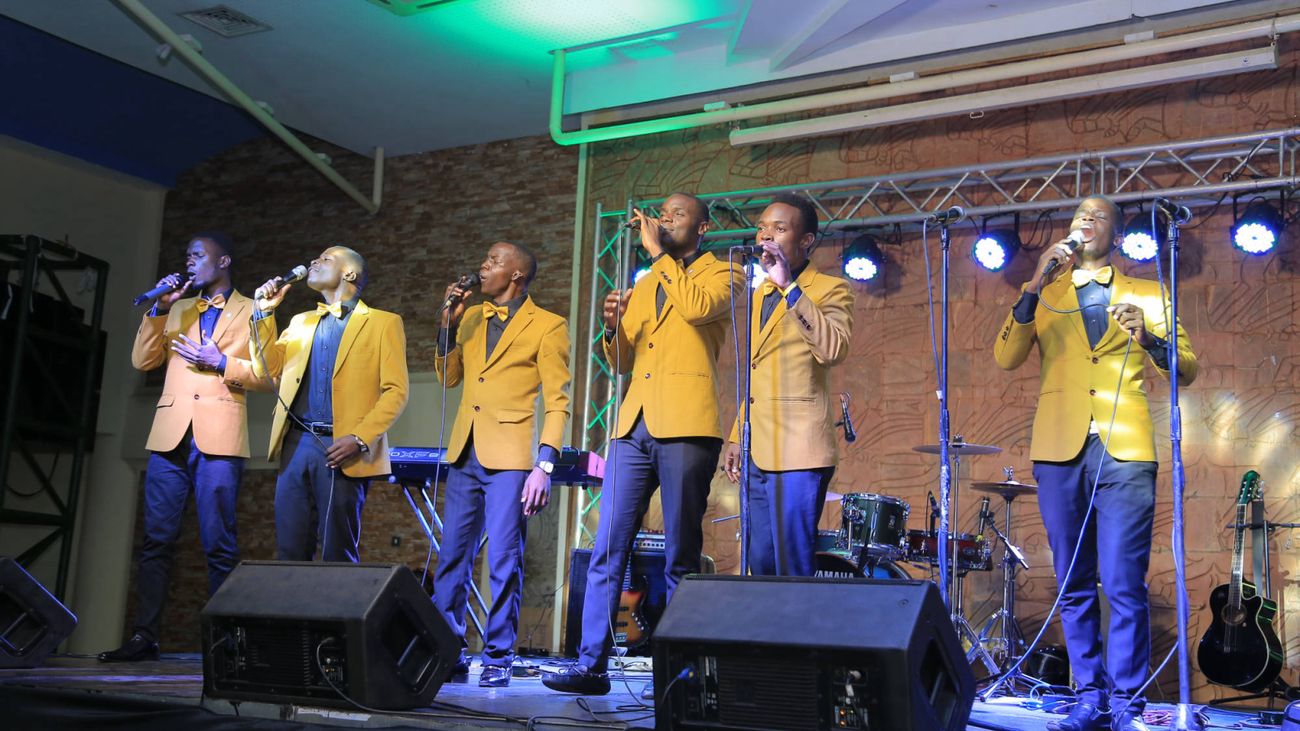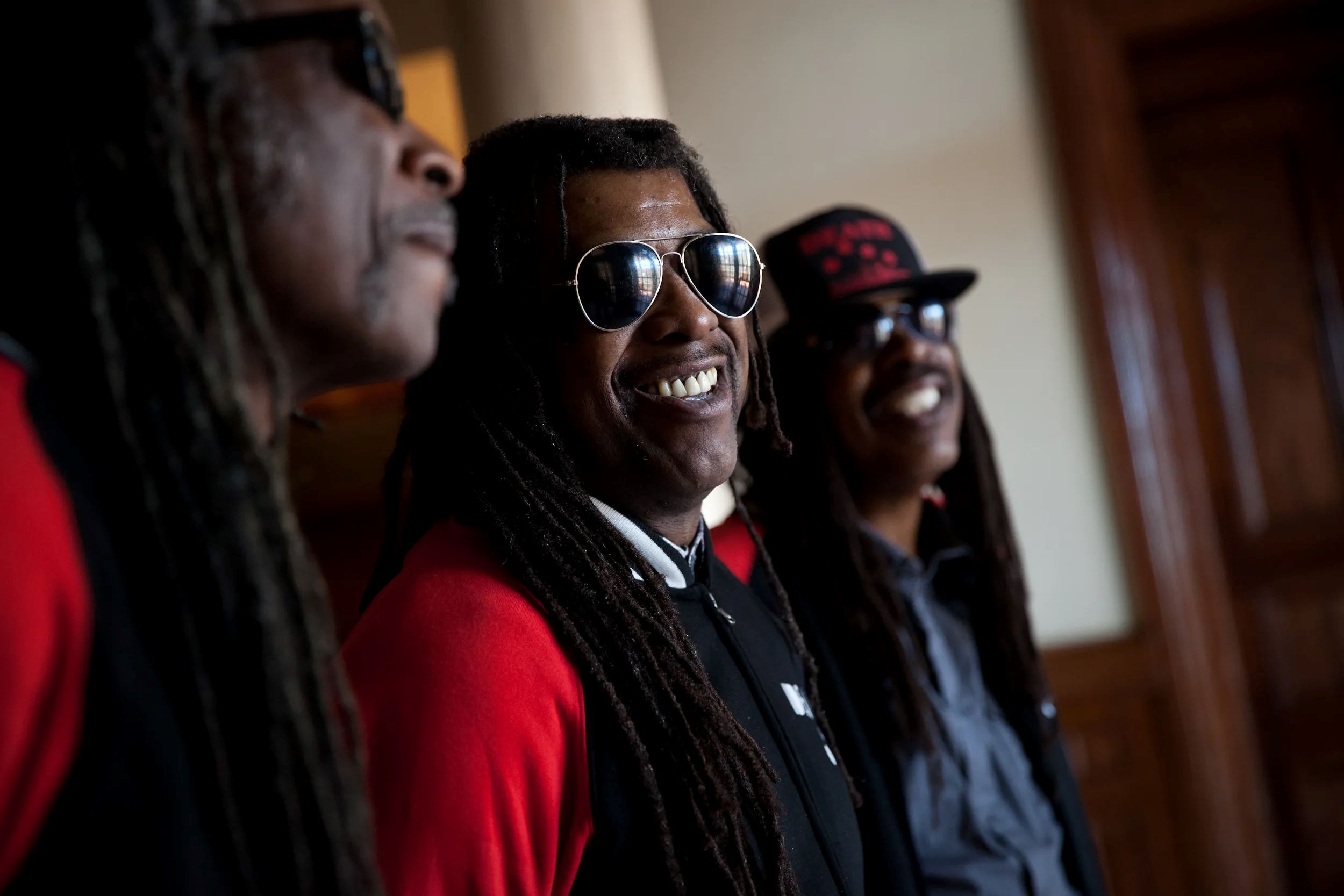Home>Genres>Reggae>When And Where Was Reggae Music Developed
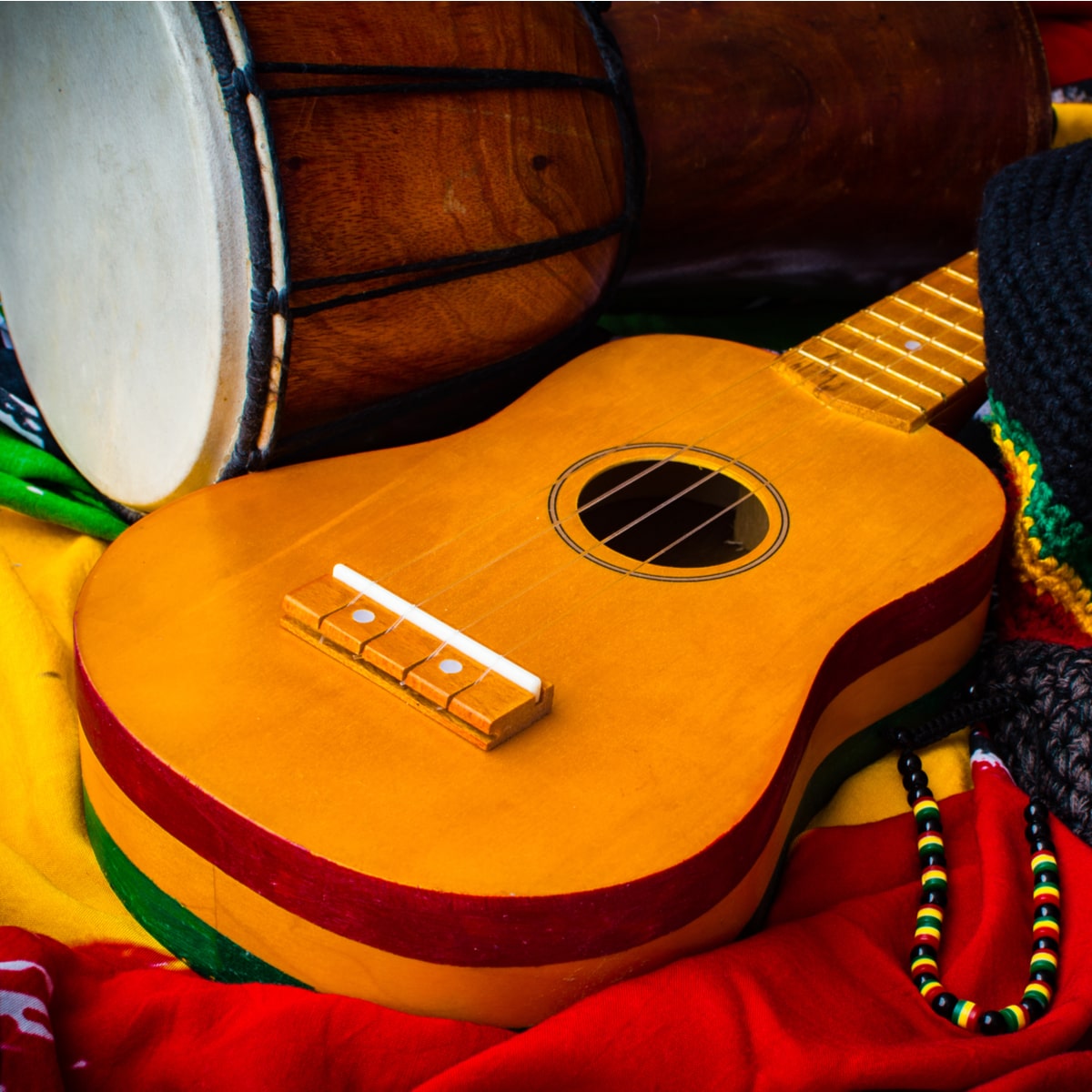

Reggae
When And Where Was Reggae Music Developed
Modified: February 15, 2024
Discover the origins of reggae music and its development over time. Learn about when and where this iconic genre was born and shaped.
(Many of the links in this article redirect to a specific reviewed product. Your purchase of these products through affiliate links helps to generate commission for AudioLover.com, at no extra cost. Learn more)
Table of Contents
Introduction
Reggae music is a genre that has captivated audiences around the world with its distinctive rhythms, heartfelt lyrics, and powerful social messages. With its origins deeply rooted in the cultural fabric of Jamaica, reggae has emerged as a powerful musical force that has transcended borders, genres, and generations.
Characterized by its syncopated rhythm, offbeat accents, and heavy basslines, reggae music was born out of the fusion of various musical styles, including ska, rocksteady, and mento, in the late 1960s. It soon became a voice for the marginalized, addressing issues of social injustice, poverty, and political oppression.
The development of reggae music can be traced back to the vibrant neighborhoods of Kingston, Jamaica, where musicians like Bob Marley, Peter Tosh, and Jimmy Cliff began crafting this unique sound. Spurred by the socio-political climate of the time, reggae became a form of expression for the voiceless and a means to shed light on the struggles faced by the Jamaican people.
Over the years, reggae has evolved and expanded its influence beyond Jamaica’s shores, captivating audiences worldwide. Its infectious rhythms and powerful vocals create a sense of unity and upliftment, allowing listeners to connect on a profound level. From the pulsating basslines of reggae to the introspective lyrics that edify the spirit, this music has become a cultural phenomenon that continues to inspire and resonate with people from all walks of life.
Reggae’s impact can be felt in various genres, including hip-hop, pop, and electronic music, as artists incorporate elements of reggae into their sound. The distinctive sound of reggae has become synonymous with feelings of positivity, hope, and resilience, making it a significant part of popular music culture.
In this article, we will delve into the origins and development of reggae music in Jamaica, explore the influences that shaped this genre, and examine its global impact. We will also take a closer look at the contemporary reggae music scene and how it continues to evolve, staying true to its roots while embracing new sounds and perspectives.
Origins of Reggae Music
The origins of reggae music can be traced back to the vibrant and culturally rich island of Jamaica in the late 1960s. This genre emerged as a result of the fusion of several musical styles, including ska, rocksteady, and mento.
Ska, which originated in the late 1950s, was a precursor to reggae. It was characterized by its lively and upbeat tempo, infectious horn sections, and syncopated rhythms. Ska brought a newfound energy to the Jamaican music scene and paved the way for the development of reggae.
In the early 1960s, ska transitioned into rocksteady, which featured a slower tempo and a focus on soulful vocals and harmonies. This laid the foundation for the distinctive sound of reggae, with its syncopated rhythm guitar accents and prominent basslines.
Mento, a traditional Jamaican folk music, also played a role in shaping reggae. Mento incorporated elements of African and European influences and was characterized by its acoustic instrumentation, catchy melodies, and humorous lyrics. The rhythmic patterns and storytelling aspect of mento were incorporated into reggae, adding a unique flavor to the genre.
One of the pivotal figures in the development of reggae music was the iconic Bob Marley. With his band, The Wailers, Marley popularized reggae on a global scale and became its most recognized and influential ambassador. His powerful and politically charged lyrics, combined with the grooves of reggae, resonated with people around the world and brought reggae into the mainstream.
Reggae music became a vehicle for expressing the struggles and hardships faced by the Jamaican people. It became a means to shed light on social injustice, poverty, and political oppression, encapsulating the aspirations and realities of a nation striving for change. The spirited rhythms and conscious lyrics of reggae provided a voice for the marginalized and a platform for social commentary.
Additionally, the Rastafari movement was deeply intertwined with reggae music. The spirituality, cultural identity, and social activism embedded within the movement resonated with the themes addressed in reggae music. The Rastafari philosophy, with its emphasis on peace, love, and unity, became an inherent part of the reggae music culture.
Overall, the origins of reggae music are rooted in the historical and cultural context of Jamaica. It emerged as a fusion of existing musical styles and became a powerful tool for social empowerment and cultural expression. Today, reggae music continues to thrive as a genre that not only entertains but also educates and inspires people worldwide.
Development of Reggae Music in Jamaica
Jamaica’s vibrant music scene and cultural melting pot played a crucial role in the development of reggae music. It is in this dynamic environment where reggae evolved, reflecting the socio-political climate and the aspirations of the Jamaican people.
As the 1960s progressed, reggae emerged as a distinct genre in Jamaica, building upon the foundations laid by ska and rocksteady. The transition to reggae was characterized by a shift in rhythmic emphasis, with a heavier focus on the offbeat and syncopated guitar accents. This change brought a new dynamism to the music, creating the infectious groove that would become a trademark of reggae.
One of the most influential figures in the development of reggae music was producer Clement “Coxsone” Dodd, who founded the legendary Studio One. Dodd’s studio became a breeding ground for talented musicians and a creative hub for the budding reggae genre. Artists like Bob Marley, Peter Tosh, and The Wailers honed their craft at Studio One, contributing to the evolution of reggae music.
During this time, reggae music started to tackle social and political issues in a more explicit manner. The lyrics became a platform to address topics such as poverty, inequality, and social injustice. Songs like Bob Marley’s “Get Up, Stand Up” and Peter Tosh’s “Equal Rights” became anthems for the oppressed and a call for societal change.
Another significant development in the Jamaican reggae scene was the rise of sound systems. These mobile disco setups, consisting of powerful speakers, turntables, and selectors (DJs), brought reggae music to the streets and communities across the island. Sound systems played a vital role in popularizing reggae and providing a platform for artists to showcase their talent.
The 1970s marked a pivotal moment for reggae music with the global success of Bob Marley and The Wailers. Their album “Catch a Fire” and the iconic single “No Woman, No Cry” propelled reggae to international fame. Marley’s message of love, unity, and social justice resonated with audiences worldwide, solidifying reggae as a powerful force for change.
Reggae’s influence continued to grow, and new subgenres such as dub and dancehall emerged. Dub, characterized by its heavy use of reverb, delay, and remixing techniques, pushed the boundaries of reggae’s sonic landscape. Dancehall, which developed in the 1980s, took reggae into a more up-tempo and energetic direction, incorporating elements of hip-hop and electronic music.
Today, reggae remains a vibrant part of Jamaican culture and has a strong presence in the international music scene. The rich history and development of reggae in Jamaica serve as a testament to the power of music as a catalyst for societal change, cultural expression, and spiritual liberation.
Influences on Reggae Music
Reggae music, while being a genre of its own, has been influenced by a diverse range of musical styles and cultural movements. These influences have shaped the sound, lyrical content, and cultural significance of reggae, creating a rich and dynamic musical tapestry.
African music, with its vibrant rhythms and expressive melodies, has had a significant impact on reggae. The rhythmic patterns and drumming techniques found in African music were foundational in creating the rhythmic pulse of reggae. The influence of African music can be heard in the syncopated guitar accents, the driving basslines, and the infectious grooves that define reggae.
The legacy of American rhythm and blues, soul, and jazz also left an indelible mark on reggae. The soulful vocals, heartfelt lyrics, and melodic sensibilities found in these genres resonated with Jamaican musicians, who incorporated these elements into their own music. Artists like Toots and the Maytals and The Skatalites brought a soulful and bluesy quality to reggae, infusing the music with emotional depth and expression.
Another influential genre that shaped reggae is gospel music. The spiritual and uplifting nature of gospel music resonated deeply with Jamaican musicians, who often drew inspiration from religious themes and infused their music with a sense of faith and hope. This influence can be heard in the soul-stirring vocal harmonies and uplifting lyrics that are hallmarks of reggae music.
The socio-political climate of Jamaica also played a crucial role in shaping reggae music. The struggles faced by the Jamaican people, including poverty, inequality, and political oppression, became the subject matter for reggae’s lyrics. Drawing inspiration from the Civil Rights Movement in the United States, reggae artists sought to raise awareness of these issues and advocate for social change.
The Rastafari movement, a spiritual and cultural movement that originated in Jamaica, has had a profound influence on reggae. The philosophies, beliefs, and cultural practices of Rastafari, including the worship of Haile Selassie I as the messiah, the promotion of African identity and pride, and the embracing of a natural and holistic lifestyle, are woven into the lyrics and imagery of reggae music.
Furthermore, the global impact of reggae music has led to cross-cultural influences. The reggae movement in the United Kingdom, often referred to as “British reggae,” brought new perspectives and sounds to the genre. Artists like Steel Pulse, UB40, and Aswad drew upon their Caribbean heritage while infusing reggae with elements of punk, rock, and pop music, creating a unique blend that appealed to a wider audience.
In summary, reggae music is a testament to the power of cultural exchange and fusion. Its influences span across continents and genres, reflecting the multifaceted nature of this genre. The rich blend of African rhythms, American soul, gospel music, socio-political awareness, and the spiritual beliefs of Rastafari have shaped reggae into the powerful and influential genre it is today.
Reggae Music’s Global Impact
Reggae music has had a profound and enduring impact on a global scale, transcending boundaries and resonating with people from all corners of the world. From its humble beginnings in Jamaica, reggae has become a universal language of unity, liberation, and social consciousness.
One of the main reasons for reggae’s global appeal is its ability to uplift spirits and evoke a sense of positivity. The infectious rhythms, laid-back melodies, and soulful vocals create a compelling sound that compels people to move and groove. Whether in small clubs, large stadiums, or at outdoor festivals, the universal language of reggae connects people from diverse cultures and backgrounds, fostering a sense of unity and togetherness.
Reggae’s influential figureheads, such as Bob Marley, Peter Tosh, and Jimmy Cliff, played a pivotal role in introducing reggae to international audiences. Their iconic songs, such as “One Love,” “No Woman, No Cry,” and “Many Rivers to Cross,” became anthems for people seeking peace, love, and justice. The social and political messages in their music resonated with listeners, sparking a global movement for equality, human rights, and social change.
Furthermore, reggae’s ability to address universal themes of love, spirituality, and social consciousness has allowed it to transcend language barriers. The music’s deep-rooted messages of love, unity, and empathy resonate with people from different cultures and backgrounds, fostering a sense of shared humanity.
The impact of reggae can be seen in the proliferation of reggae festivals and events around the world. From the iconic Reggae Sunsplash in Jamaica to the Rototom Sunsplash in Spain, these festivals celebrate the rich cultural heritage of reggae and attract thousands of fans each year. In these spaces, reggae acts as a unifying force, bringing people together to celebrate the music, dance, and share in the positive vibrations.
Reggae’s influence can also be heard in various genres of music outside of Jamaica. Artists such as The Police, Sublime, and Bruno Mars have incorporated reggae elements into their sound, creating a fusion of styles that reaches wide audiences. The infectious rhythms, distinctive guitar accents, and laid-back grooves of reggae can be found in the DNA of popular music, showcasing the genre’s far-reaching impact.
Moreover, reggae music’s global impact extends beyond the realm of entertainment. It has become a source of inspiration and empowerment for social movements around the world. Whether it’s in the fight against apartheid in South Africa, the struggle for civil rights in the United States, or movements for equality and justice in various countries, reggae has served as a rallying cry for change, giving a voice to the voiceless and inspiring generations to stand up against oppression.
Overall, reggae music’s global impact is a testament to its timeless appeal and powerful messages. Its ability to bridge cultural divides, ignite social change, and bring people together in celebration and unity has made reggae a force to be reckoned with on the world stage.
Contemporary Reggae Music Scene
The contemporary reggae music scene is a vibrant and ever-evolving landscape that continues to honor the roots of the genre while embracing new sounds and perspectives. From Jamaica to the global stage, reggae artists are creating music that reflects the current socio-political climate and connects with modern audiences.
In Jamaica, a new generation of reggae artists has emerged, carrying on the legacy of their predecessors. These artists, such as Chronixx, Protoje, and Jah9, bring a fresh perspective to reggae music, infusing it with elements of hip-hop, R&B, and electronic music. Their lyrics are thought-provoking and introspective, addressing issues such as identity, spirituality, love, and social justice.
Beyond Jamaica, reggae artists from around the world are making significant contributions to the genre. In the United States, artists like SOJA, Rebelution, and Stick Figure have gained international recognition for their modern take on reggae, incorporating elements of rock, fusion, and electronic music. These artists have a strong fan base and tour extensively, spreading the positive vibrations of reggae to audiences far and wide.
In Europe, countries like the United Kingdom, Germany, and France have vibrant reggae scenes. Artists such as Gentleman from Germany and Alborosie from Italy have made significant impacts on the global reggae stage, infusing their music with their own cultural influences and collaborating with Jamaican artists.
One of the notable trends in contemporary reggae is the fusion of reggae with other genres. Reggae fusion has become more prevalent, blending reggae with elements of pop, dancehall, hip-hop, and Afrobeat. Artists such as Koffee, Damian Marley, and Major Lazer have successfully embraced this fusion, creating music that appeals to a wide range of listeners and expands the boundaries of reggae.
Additionally, female artists are making significant contributions to the reggae music scene. Powerful voices such as Queen Ifrica, Etana, and Kelissa are breaking barriers and challenging stereotypes with their empowering lyrics and captivating performances. They bring a fresh perspective to the genre and amplify the voices of women in reggae music.
The rise of digital platforms and streaming services has also played a role in the evolution of reggae music. Independent artists now have more opportunities to release their music and reach a global audience without relying solely on traditional record labels. This has led to a diverse and thriving reggae music ecosystem, with a multitude of talented artists contributing to the genre’s growth.
Furthermore, reggae music festivals continue to draw massive crowds, showcasing the best of the contemporary reggae scene. Events such as the Rototom Sunsplash in Spain, the Reggae Sumfest in Jamaica, and the Sierra Nevada World Music Festival in California provide platforms for established and emerging reggae artists to perform and connect with fans from around the world.
Overall, the contemporary reggae music scene is characterized by its diversity, innovation, and commitment to spreading messages of love, unity, and social consciousness. As reggae continues to evolve and reach new audiences, it remains a powerful force for positive change and a source of inspiration for people across the globe.
Conclusion
Reggae music, with its roots deeply embedded in the Jamaican culture, has become a global phenomenon that transcends borders and unites people through its infectious rhythms, soul-stirring melodies, and profound social messages. From its humble beginnings in the 1960s to its current status as a powerful and influential genre, reggae has left an indelible mark on the music world.
The origins of reggae can be traced back to the fusion of ska, rocksteady, and mento, all deeply rooted in the Jamaican musical landscape. This fusion gave birth to a new sound characterized by its syncopated rhythm, offbeat accents, and heavy basslines. Reggae quickly became a vehicle for addressing social injustices, poverty, and political oppression, resonating with the marginalized and giving voice to the voiceless.
Reggae’s impact goes far beyond its home country of Jamaica. Its universal appeal can be credited to influential figures like Bob Marley and The Wailers, who brought reggae to the global stage and sparked a movement for social change. Their songs with messages of love, unity, and justice became anthems of hope for people around the world.
The global impact of reggae can be felt in the proliferation of reggae festivals, the fusion of reggae with other musical genres, and the emergence of new voices from different corners of the world. Artists continue to push the boundaries of reggae, infusing it with modern influences while staying true to its roots.
Reggae music has shown its ability to bring people together, to uplift spirits, and to inspire change. It has become a universal language of unity, love, and cultural expression. The messages of positivity, resilience, and social consciousness embedded within reggae resonate with listeners of all ages and backgrounds, fostering a sense of connection and empathy.
As the contemporary reggae music scene continues to evolve, it remains a platform for artists to address current social and political issues, to celebrate cultural heritage, and to spread joy and positivity. Reggae’s legacy as a force for change and a symbol of unity ensures its enduring importance in the world of music.
In conclusion, reggae music’s journey from its origins in Jamaica to its global impact has been a testament to the power of music to transcend barriers and inspire change. With its rhythmic groove, passionate vocals, and messages of love and unity, reggae continues to be a powerful force that unites people across the world, spreading positive vibrations and uplifting spirits.

